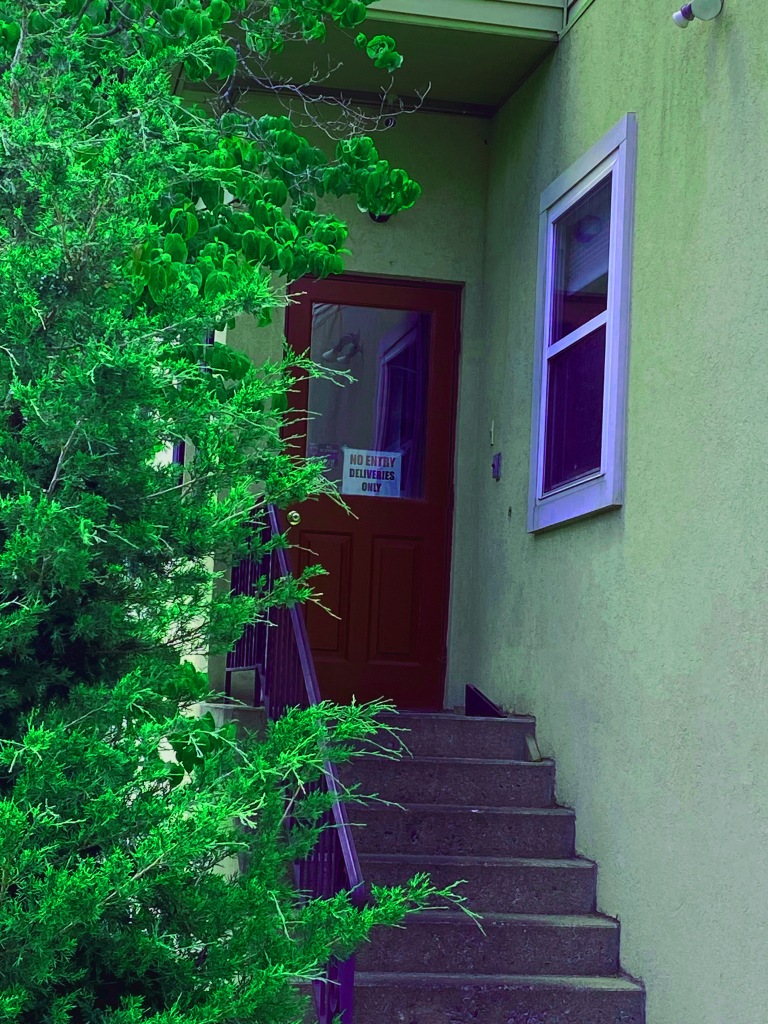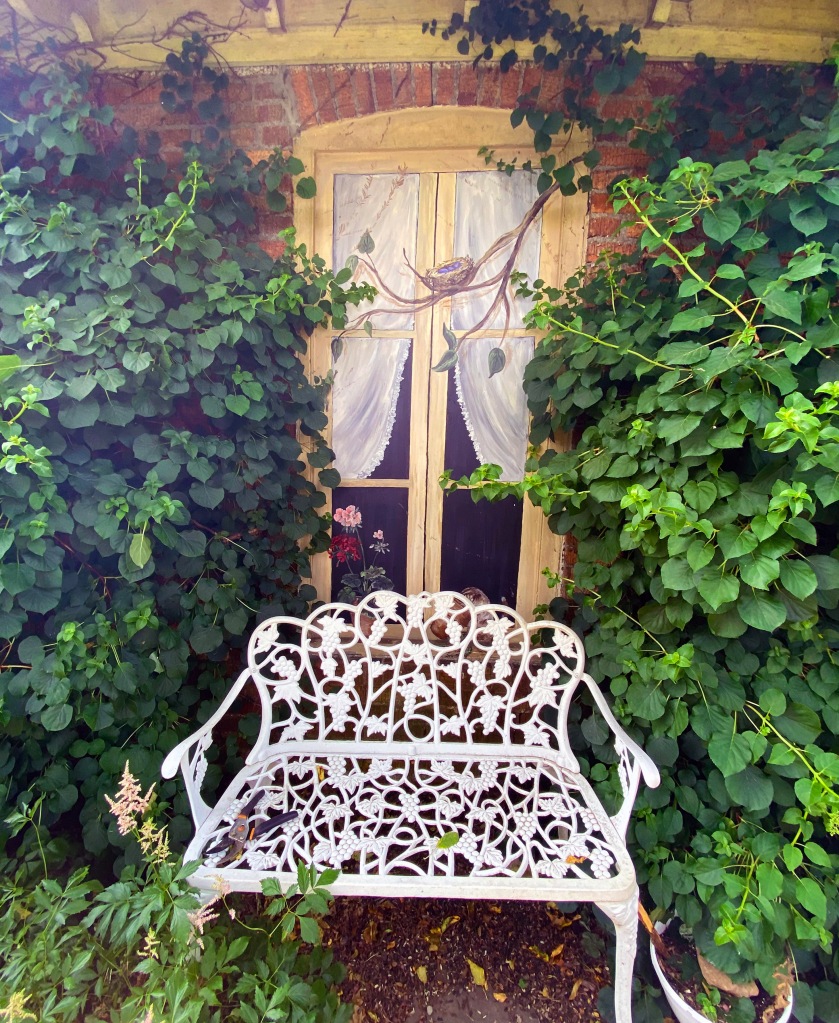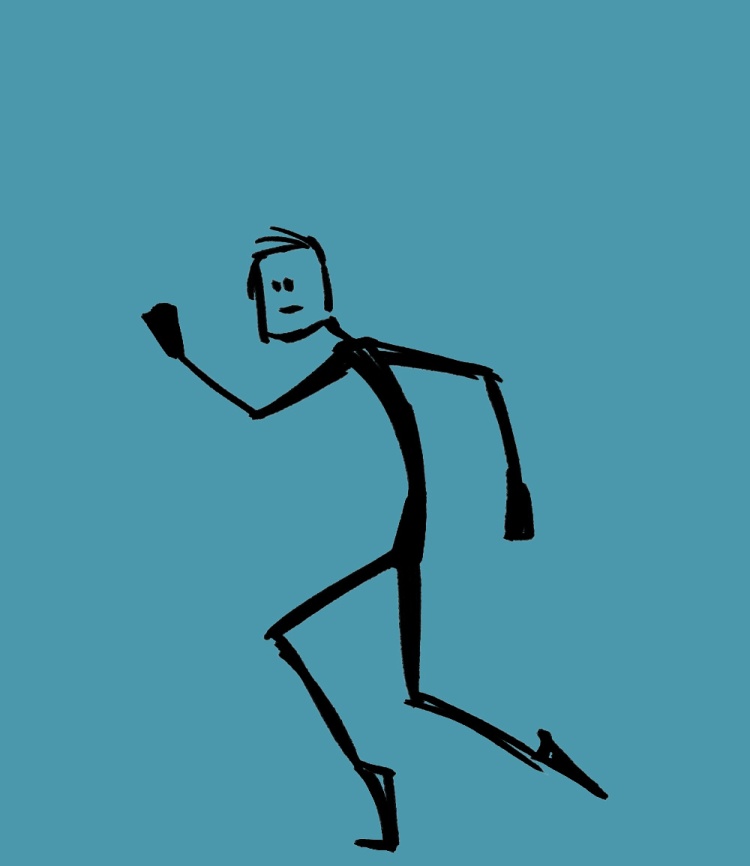

- Old man stealing battered shrimp by E. Martin Pedersen
- I Age by Michael Lee Johnson
- All These Lonely Places by Heather Sager
- I don’t want to die and so far I’m not by Gale Acuff
- A Good Woman byJuanita Rey
- Sliver of Time by Stephen Schwei
- Song Made in Lieu of Many Ornaments by Salvatore Difalco
- Homecoming by Deborah-Zenha Adams
- The Tragedy of Love by Charlie Brice
- Timelessness by Michael Estabrook
- Kisses Are Miracles by Peter Mladinic
- The Gardener by Joan Magiet
- Cry Baby by Donna Dallas

I have mentioned in my previous editor’s notes that I choose each poem individually based on it’s own merits and do not work towards any type of themes in each issue (though I may break that rule for Fall.) I collected these poems, not realizing how well they meshed until I read the issue as a whole. The only word I can come up for this Summer’s rendition of Stick Figure is “entropic.” Themes of age, time, and social disparity line these pieces, with just a slight glimmer of hope toward the end. I guess poetry is just like that sometimes… okay, a lot of the timeGo forth and read. I’m sure you will enjoy the poems that follow as much as I did.


from the all you can eat
sliding off his plate
into a plastic bag into a backpack
his wife scowling looking over at me
like oh brother this guy I married
but they’ll eat shrimp together
maybe tomorrow thanks to petty theft
by an old couple that deserved
a break
a free meal in America
risking arrest for the dream
battered shrimp growing on trees
hard work will be rewarded
no jackboots hassle
I ate my share of the buffet
I tasted it all
I left America the next day
for my exile
in a land of no milk, no honey
and maybe that’s best
maybe no all you can eat
no senior discounts
no expectation
of charity or luck
we gnaw the same bone
gathered like lions with red lipstick
who then rest and chat splayed out
‘fore another day on the prowl
getting by for now
somehow.
Written as number 30 of The Limbo Reports
E. Martin Pedersen, originally from San Francisco, has lived for over forty years in eastern Sicily, where he taught English at the local university. His poetry appeared most recently in Avatar Review, Canyon Voices, Slab, SurVision, and Helix Literary Magazine, among others. Martin is an alumnus of the Community of Writers. He has published two collections of haiku, Bitter Pills and Smart Pills, and a chapbook, Exile’s Choice, from Kelsay Books. A full collection, Method & Madness, is forthcoming from Odyssey Press. Martin’s poem, “Gull Eggs,” was nominated by Flapper Press for the Best of the Net Award 2023.


Arthritis and aging make it hard,
I walk gingerly, with a cane, and walk
slow, bent forward, fear threats,
falls, fear denouement─
I turn pages, my family albums
become a task.
But I can still bake and shake,
sugar cookies, sweet potato,
lemon meringue pies.
Alone, most of my time,
but never on Sundays,
friends and communion,
United Church of Canada.
I chug a few down,
love my Blonde Canadian Pale Ale,
Copenhagen long cut a pinch of snuff.
I can still dance the Boogie-woogie,
Lindy Hop in my living room,
with my nursing care home partner.
Aging has left me with youthful dimples,
but few long-term promises.
Michael Lee Johnson lived ten years in Canada during the Vietnam era. Today he is a poet in the greater Chicagoland area, IL. He has 275 YouTube poetry videos. Michael Lee Johnson is an internationally published poet in 44 countries, has several published poetry books, has been nominated for 6 Pushcart Prize awards, and 6 Best of the Net nominations. He is editor-in-chief of 3 poetry anthologies, all available on Amazon, and has several poetry books and chapbooks. He has over 453 published poems. Michael is the administrator of 6 Facebook Poetry groups. Member Illinois State Poetry Society: http://www.illinoispoets.org/. Do not forget to consider me for Best of the Net or Pushcart nomination!


but then again I probably am, what
else can growing be but heading for
the end and the end is death and death will
really come alive in Heaven or Hell
and for eternity, longer than for
-ever and me right there with it unless
I’m not, there’s no Gale then but death itself
which means that all folks become one when they
croak so as far as identity is
concerned I’d better make my mark now as
some kind of a somebody-else and that’s
a lot for a ten-year-old boy to think
about who likes comic books and pizza
rolls and Father’s Playboys. I have to die?
Gale Acuff has had hundreds of poems published in a dozen countries and has authored three books of poetry. His poems have appeared in Ascent, Reed, Arkansas Review, Poem, Slant, Aethlon, Florida Review, South Carolina Review, Carolina Quarterly, Roanoke Danse Macabre, Ohio Journal, Sou’wester, South Dakota Review, North Dakota Quarterly, New Texas, Midwest Quarterly, Poetry Midwest, Adirondack Review, Worcester Review, Adirondack Review, Connecticut River Review, Delmarva Review, Maryland Poetry Review, Maryland Literary Review, George Washington Review, Pennsylvania Literary Journal, Ann Arbor Review, Plainsongs, Chiron Review, George Washington Review, McNeese Review, Weber, War, Literature & the Arts, Poet Lore, Able Muse, The Font, Fine Lines, Teach.Write., Oracle, Hamilton Stone Review, Sequential Art Narrative in Education, Cardiff Review, Tokyo Review, Indian Review, Muse India, Bombay Review, Westerly, and many other journals.Gale has taught tertiary English courses in the US, PR China, and Palestine.



We’ve all been lonely.
Here’s how it happens.
On the street corner,
where greenery shadows the red stoplight.
At the farmer’s market, blending in;
or up on the Ferris wheel at the county fair,
whizzing by like you’re
without a care. At
the diner with good black coffee.
The eggs benedict smiling up on the plate.
Driving past the wood pile
near a suburban house.
The scent of garlic on fingers.
Oh,
to find the smoke of some loved one’s absence
everywhere.
Heather Sager lives in Illinois where she writes poetry and fiction. Most recently, her work has appeared in Poetry Pacific, The Bluebird Word, Setu, morphrog, Magma, Otoliths, Flights, The Fabulist, Highland Park Poetry’s Odes anthology, and more.


There’s a good to you
when you leave your apartment.
You’re in your flat-soled shoes.
You’re walking.
Wind’s blowing through your hair.
You stop for a homeless woman,
drop a five-buck note in her hand.
A block farther along,
you try to regret what you’ve just done
because you could really
have used that money.
But you can’t.
Goodness overwhelms all compunction.
You almost wish you’d given more.
In the store, you find
you’re a little short
so you have to put three things back
on the shelf.
No matter.
You’re still good.
Whatever you don’t have enough of,
it won’t be goodness.
Juanita Rey is a Dominican poet who has been in this country five years. Her work has been published in Mixed Mag, The Mantle and The Art Of Everyone.


Acorns are gone,
swept away.
People in graves
marked for the 1800s
had no idea
what the 21st century
would be like.
And I’ll never see
the 23rd or 89th
or anything on the horizon.
But the sky
is still trembling blue,
exasperatingly blue
and trees line the roads
like they very well might have
even in that time.
This doesn’t feel
like an 1800s cemetery.
It’s carved
out of the city
and could remain
a secret source
of boiling over blue skies
and mating butterflies,
masking and elongating time.
I’m here
for only
the faintest
sliver of time,
while thoughts and ideas
and comforting blue skies
traverse the eons.
Published previously by New Reader Magazine.
Stephen Schwei is a Pushcart-nominated Houston poet with Wisconsin roots, published in Wax Poetry & Art, Beneath the Rainbow, Hidden Constellation, Borfski Press, and the New Reader Magazine. He has published one volume of poetry, Bluebonnet Whispers. A gay man with three grown children and four wonderful grandchildren, who worked in Information Technology most of his life, he can be a mass of contradictions. Poetry helps to sort all of this out. www.stephenschwei.com



The wedding cake looked like a coffin
for an infant, all pink and white fondant,
under a smother of snow white blooms.
The groom wore a chalky blue tuxedo
that weakened his chin and tinted his skin
and gave him a generally terminal bearing.
The best man’s hair looked amniotic,
his lip-licking eye-popping manner lubricious.
The bride resembled a wild mad bird,
flapping her wings and squawking
about the flowers, the flowers—there
weren’t enough flowers: two sombre violinists
stroked out a contrapuntal Bach thing
and bridesmaids in yellow chiffon singsonged.
I stayed cool through clanking toasts
and foolish jokes that crashed like albatrosses.
I nodded and smiled at the slurry
rhetorical salads of Rob Roy speechifiers,
and I slowly rose and lightly applauded
the jubilant couple’s stiffish first dance
to Luther Vandross’s If Only For One Night.
They had chosen to be made one flesh,
at least for that moment in time: no one
can watch a hawk streak across the sky
and from its flight predict the future.
I drifted off to a mossy place in my skull,
where luscious clusters of grape dripped juice
and ripe peaches and pears thumped about me.
The groom’s mouth sealed the bride’s
in a final public show of their cupidity,
though after ten seconds she pushed him away
in order to draw breath and wipe off her face.
I sat at a table with thick-tongued strangers,
both legs having dozed off during the speeches.
And while I could not rise at that moment,
I could neither rest nor be idly content
with the situation: my bladder agreed.
As I waited for the pins and needles to recede
an intensifying waft of rotting flowers clashed
with the sudden and magical arrival of dessert.
As the others savaged their baked Alaska,
I slowly rose, hoping no one asked who I was.
Salvatore Difalco is a Sicilian Canadian poet and satirist.


These walls hold music
I thought too fragile
to survive. It calls from behind
peeling paper, from photographs,
and greeting cards signed
by forgotten names,
notes flowing like river
over submerged lies
and jagged truths.
Sometimes pines bend
closer to ground
burdened by renegade
snow. Even now, well
past summer, they lean
slightly—always fearful
of another onslaught.
Sweet potatoes, shriveled
and pithy, hunker in the bin.
How did we overlook
these traces of life
when packing away
perishables?
Deborah-Zenha Adams is an award-winning author of novels, short fiction, CNF, and poetry. Her work has appeared in Adelaide Literary Magazine, The Orchards Poetry Journal, One, Sheila-na-gig, and other journals. You’re invited to visit her website to read more of her work.


They’ve found a shady spot on this
summer day. His hat tipped back
on his head, he reads the news
to his sweetheart. Her flowered
hat bouquets her silken hair
and rosy cheeks. She rests her
hands on his strong shoulders, her
long white dress a drapery of calm.
Her little dog pants next to her red shoes.
This moment of peace,
this segment of serenity,
this prelude to the tragedy of love.
Thirty years later he has ladies in other
towns, none as important as she, he
assures her. She is as bored as Madame
Bovary. Her bodice has adorned many
dressing tables. Memories of other lovers
fill the flaccid spaces between them.
Hatred envelops them like a chrysalis of ordure.
When they hatch, they fly together
in crazed ogees, chasing one another,
each trying to wear the other out, each
caught in a spiraling aeronautics of doom.
Charlie Brice won the 2020 Field Guide Poetry Magazine Poetry Contest and placed third in the 2021 Allen Ginsberg Poetry Prize. His sixth full-length poetry collection is Pinnacles of Hope (Impspired Books, 2022). His poetry has been nominated three times for both the Best of Net Anthology and the Pushcart Prize and has appeared in Atlanta Review, The Honest Ulsterman, Ibbetson Street, The Paterson Literary Review, Impspired Magazine, Salamander Ink Magazine, and elsewhere.


The Brewster’s Ladies’ Library started
by two ladies 150 years ago
is still going strong. My mother
volunteers there, holds the record
for the most volunteer hours worked
during the year.
“I love this place,” she says
as we leave the book stacks and wander back
into the newspaper reading room
with its musty newspaper smell. An old man
in a heavy brown coat, slouched down
like a crumpled walrus in a big leather chair,
doesn’t even glance up from his newspaper
as we enter the room.
But I can see the slight smile
as he overhears my mother’s reverent voice
talking about the library, with its quiet corners
and sacred spaces. “I love this place,”
she says again as she takes
my arm, the color rising in her cheeks.
My dad would be proud of her I think,
taking such good care
of all these books.
Michael Estabrook’s most recent collection is Controlling Chaos: A Hybrid Poem (Atmosphere Press, 2022). Retired now writing more poems and working more outside, he just noticed two Cooper’s hawks staked out in the yard or rather above it which explains the nerve-wracked chipmunks. He lives in Acton, Massachusetts. https://michaelestabrook.org/


Flames in winter, buds in spring,
summer’s rose, autumn’s gold leaf,
our kisses. Neither of us has a car.
I have a driver’s license, you have too,
but we walk a lot. I’m not going to lie,
you’re the world’s best kisser.
We ride bicycles out to Lake Harriet
and sit under an elm, all these trees wish
to be with you. Your eyes enchant mine.
A Sunday afternoon in May, a different lake,
a different tree. Our kissing on a train?
The ride itself happens,
and your eyes, nose and mouth.
No eyelashes lovelier than yours.
One morning as you sleep I kiss your lips.
Our first kiss, near a big white house
on a corner, a late night snow falling,
you’re the miracle.
Peter Mladinic’s fifth book of poems, Voices from the Past, is forthcoming from Better Than Starbucks Publications.
An animal rights advocate, he lives in Hobbs, New Mexico, USA.



When you mowed the lawn,
the sweat from your brow
formed wings of water
above the garden, glided
toward the geraniums and petunias
pinned by the earth, grabbed
the grass and shone
like dew at dawn
or a gust of raindrops
that interfered with the sun.
One drop fell on the marigold buds,
glistened there until they blossomed
into flowers.
Joan Magiet is a former Assistant Professor of English, adjunct faculty at SUNY Nassau, N.Y. She is also an award winning journalist and poet. She is a founding member of Performance Poets Association, former editor and contest judge. She is the author of four books of poetry, Push Back the Boundaries, Newsy Limericks, Tender Chains and Haiku for Jewtalian Mothers. Tender Chains and Haiku for Jewtalian Mothers are available on Amazon and Barnes and Noble. She gives readings and book signings at local libraries and bookstores.


One
tear
sea-salt
sperm milk
lick it as
it dribbles
down my face
an ocean of
spasms
I will hold my breathe
for the next wave
Not a word out of you watch me gasp guilty insulter
I feel your mother laughing at me
she breathes after dinner mints
over my shoulder
I’m such a wimp…….
one tear too many……..
I will devour you
Donna Dallas has appeared in a plethora of journals, most recently The Opiate, Beatnik Cowboy, Tribes, Horror Sleaze Trash and Fevers of the Mind. She is the author of Death Sisters, her first novel published by Alien Buddha Press. Her chapbook, Smoke and Mirrors, launched in 2022 with New York Quarterly. Donna serves on the editorial team of NYQ.
donnaanndallas@gmail.com
@DonnaDallas15



